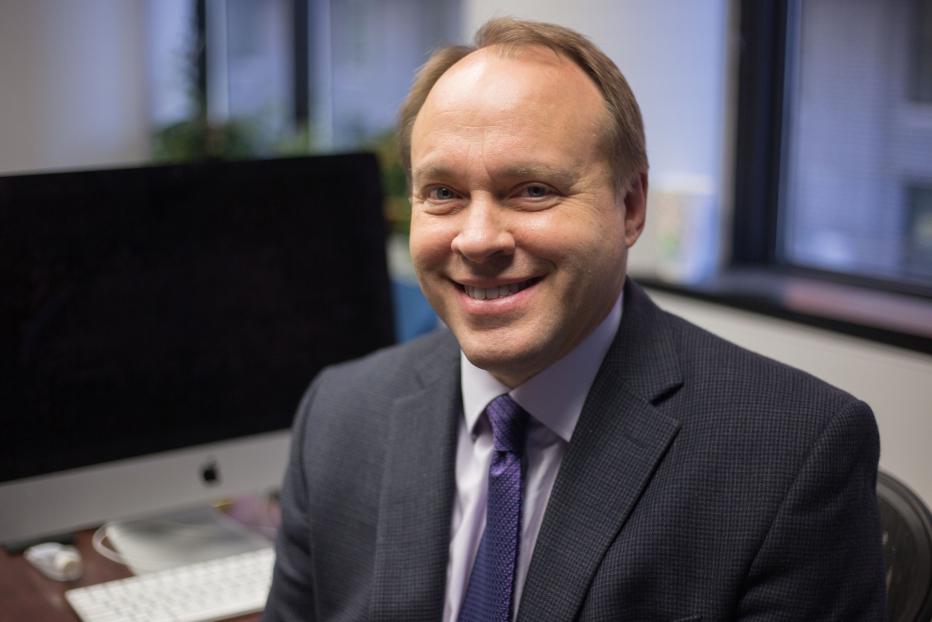Columbian College of Arts and Sciences officials are looking to make a dozen hires as part of a broader push launched last year to improve diversity in the school.
CCAS’ Inclusive Excellence Initiative, which was launched over the summer, has led officials to authorize 12 searches for faculty positions specializing in subjects like criminology, race, mental health inequities and African American studies throughout the academic year. CCAS faculty and staff said the initiative will enhance the school through more diverse curricula offerings and build a faculty that is more racially reflective of the school’s students.
About 20 percent of faculty employed last academic year belong to minority groups, according to institutional data.
CCAS Dean Paul Wahlbeck, who created the initiative in tandem with the school’s dean’s council, said the past year was the “opportune time” to launch the initiative because of a large number of faculty positions left open by professors who retired throughout the COVID-19 pandemic and student demand for increased representation of underrepresented minority professors. Wahlbeck said the new positions will make the curriculum and faculty more inclusive to support student success.
“We now have an opportunity to transform our curriculum, our teaching approaches and our faculty through these new hires,” Wahlbeck said in an email. “This effort will continue on searches going forward.”
CCAS faculty started calling for increased diversity last spring with a petition to cluster hire, a method to target and hire multiple underrepresented faculty. In May, members of the Faculty Senate’s diversity, equity and inclusion subcommittee said the timeline to increase the number of underrepresented faculty within CCAS was a “work in progress.”
Officials are searching for potential faculty in areas like Africana and American studies, anthropology, art history, theater and dance, history, political science, clinical psychology, sociology and the University Writing program, according to the University website.
Department chairs said they submitted Inclusive Excellence position requests for administrator approval last year, and after receiving permission, they started searching for potential candidates last semester. They hope to make the hires by the start of the next academic year.
Daniel Schwartz, the chair of the history department, said the department is targeting two candidates with specialties in Latin American history and American slavery and emancipation to addressing gaps in the department’s curriculum. Schwartz said the faculty search comes from high demand for courses that teach unique perspectives on racial history.
“We had proposed these two areas as ones in which the chances of there being a diverse applicant pool were greater, not only that in terms of the applicant pool, but also there’s just that it would contribute to diversifying the curriculum and dealing with genuinely important subjects,” he said.
Schwartz said his department is nearing the first round of interviews in the search process, and he hopes to make hiring decisions by early- to mid-March. He said he was pleased with GW’s dedication to the initiative because officials listened to faculty demands to cluster hire more diverse professors in CCAS.
“I was really encouraged by the University’s embrace of this new priority,” Schwartz said. “There were many faculty last year doing part of a push to diversify the faculty and encourage a kind of cluster hire of diverse faculty.”
Hiromi Ishizawa, the chair of the sociology department, said her department is using a search committee, which includes a diversity advocate and department leaders, to review candidates’ publications and ensure they are meeting Inclusive Excellence Initiative goals. She said the department’s job listing for an assistant professor who specializes in criminology encouraged Black, Latino and Indigenous candidates to apply in hopes of offering new courses and perspectives to improve the department’s curriculum.
“We are hoping that our current faculty as well as a new member will review our own syllabus and curriculum to be intentional or what to include in the curriculum,” she said.
Gordon Mantler, the executive director of the University Writing program and a professor of writing and history, said UW faculty are looking for a specialist in antiracist pedagogy. Mantler said program leaders have been looking to add the position for “quite a while” because the makeup of the faculty should be more representative of the student body.
“We want our program and the University to become as welcoming and inclusive a space as possible,” Mantler said in an email. “That requires changing the larger culture at GW and having faculty that share many of the same experiences as their students.”
Mantler said the UW program and members of the GW community have actively encouraged officials to “cluster hire” underrepresented faculty to meet diversity, equity and inclusion standards.
“This was certainly not some high-handed mandate,” Mantler said. “If anything, the necessary pressure came from below – from students, from faculty, from staff, from the streets.”
Irene Foster, the director of inclusive excellence in the economics department, said she is looking for ways to assist students dealing with the effects of education inequity, including those from marginalized communities who can fall behind their peers in math and writing and may not be fully prepared for class, as part of her role as director.
“We’re trying to see what are the issues that are going on, that are preventing students from succeeding – lack of study skills,” she said. “For economics, it’s lack of adequate preparation, mathematics, the ability to get a tutor if needed. All of these sorts of things are impediments.”







